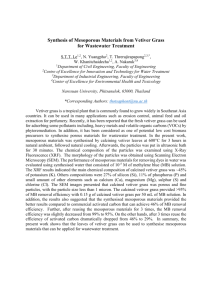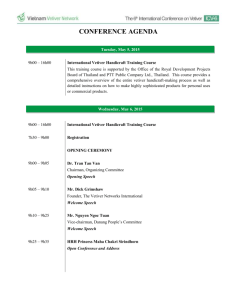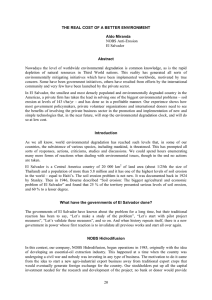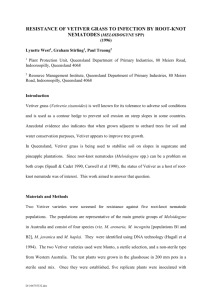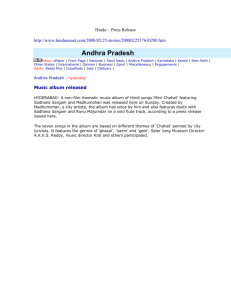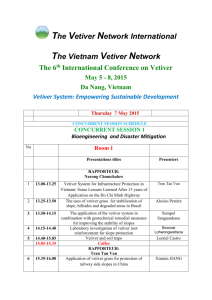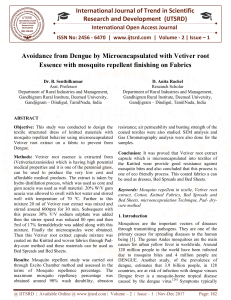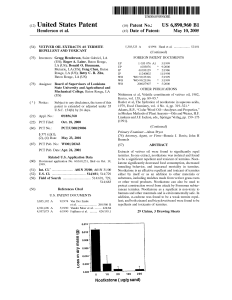Draft Synopsis of a Project to Demonstrate Comprehensive Water
advertisement
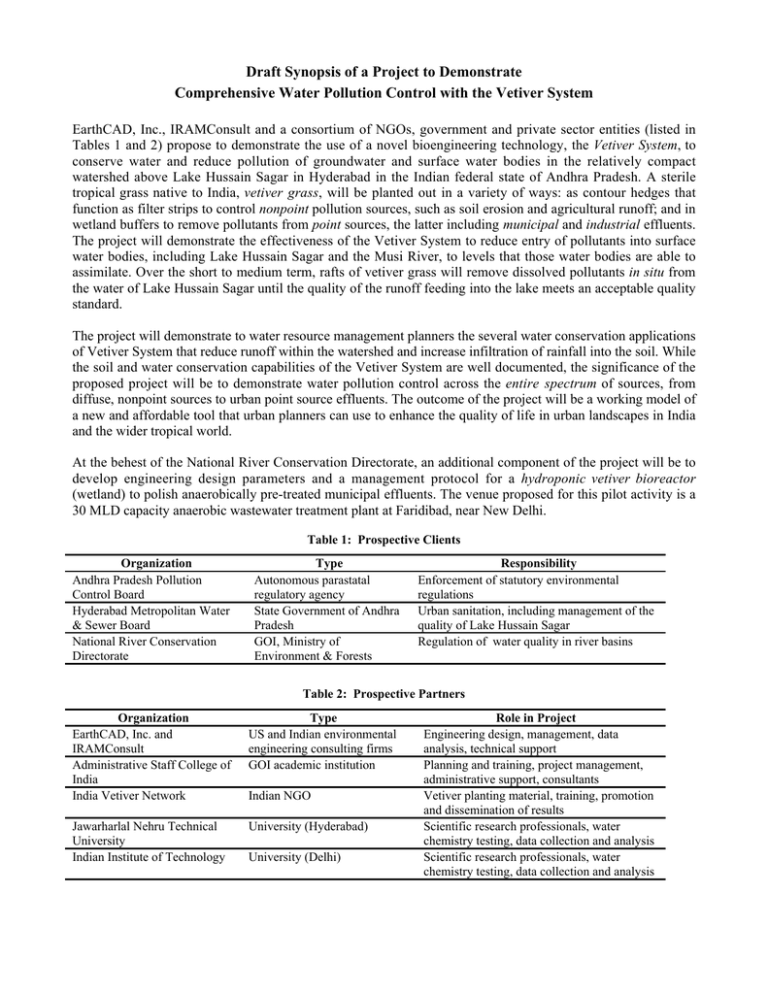
Draft Synopsis of a Project to Demonstrate Comprehensive Water Pollution Control with the Vetiver System EarthCAD, Inc., IRAMConsult and a consortium of NGOs, government and private sector entities (listed in Tables 1 and 2) propose to demonstrate the use of a novel bioengineering technology, the Vetiver System, to conserve water and reduce pollution of groundwater and surface water bodies in the relatively compact watershed above Lake Hussain Sagar in Hyderabad in the Indian federal state of Andhra Pradesh. A sterile tropical grass native to India, vetiver grass, will be planted out in a variety of ways: as contour hedges that function as filter strips to control nonpoint pollution sources, such as soil erosion and agricultural runoff; and in wetland buffers to remove pollutants from point sources, the latter including municipal and industrial effluents. The project will demonstrate the effectiveness of the Vetiver System to reduce entry of pollutants into surface water bodies, including Lake Hussain Sagar and the Musi River, to levels that those water bodies are able to assimilate. Over the short to medium term, rafts of vetiver grass will remove dissolved pollutants in situ from the water of Lake Hussain Sagar until the quality of the runoff feeding into the lake meets an acceptable quality standard. The project will demonstrate to water resource management planners the several water conservation applications of Vetiver System that reduce runoff within the watershed and increase infiltration of rainfall into the soil. While the soil and water conservation capabilities of the Vetiver System are well documented, the significance of the proposed project will be to demonstrate water pollution control across the entire spectrum of sources, from diffuse, nonpoint sources to urban point source effluents. The outcome of the project will be a working model of a new and affordable tool that urban planners can use to enhance the quality of life in urban landscapes in India and the wider tropical world. At the behest of the National River Conservation Directorate, an additional component of the project will be to develop engineering design parameters and a management protocol for a hydroponic vetiver bioreactor (wetland) to polish anaerobically pre-treated municipal effluents. The venue proposed for this pilot activity is a 30 MLD capacity anaerobic wastewater treatment plant at Faridibad, near New Delhi. Table 1: Prospective Clients Organization Andhra Pradesh Pollution Control Board Hyderabad Metropolitan Water & Sewer Board National River Conservation Directorate Type Autonomous parastatal regulatory agency State Government of Andhra Pradesh GOI, Ministry of Environment & Forests Responsibility Enforcement of statutory environmental regulations Urban sanitation, including management of the quality of Lake Hussain Sagar Regulation of water quality in river basins Table 2: Prospective Partners Organization EarthCAD, Inc. and IRAMConsult Administrative Staff College of India India Vetiver Network Type US and Indian environmental engineering consulting firms GOI academic institution Jawarharlal Nehru Technical University Indian Institute of Technology University (Hyderabad) Indian NGO University (Delhi) Role in Project Engineering design, management, data analysis, technical support Planning and training, project management, administrative support, consultants Vetiver planting material, training, promotion and dissemination of results Scientific research professionals, water chemistry testing, data collection and analysis Scientific research professionals, water chemistry testing, data collection and analysis
